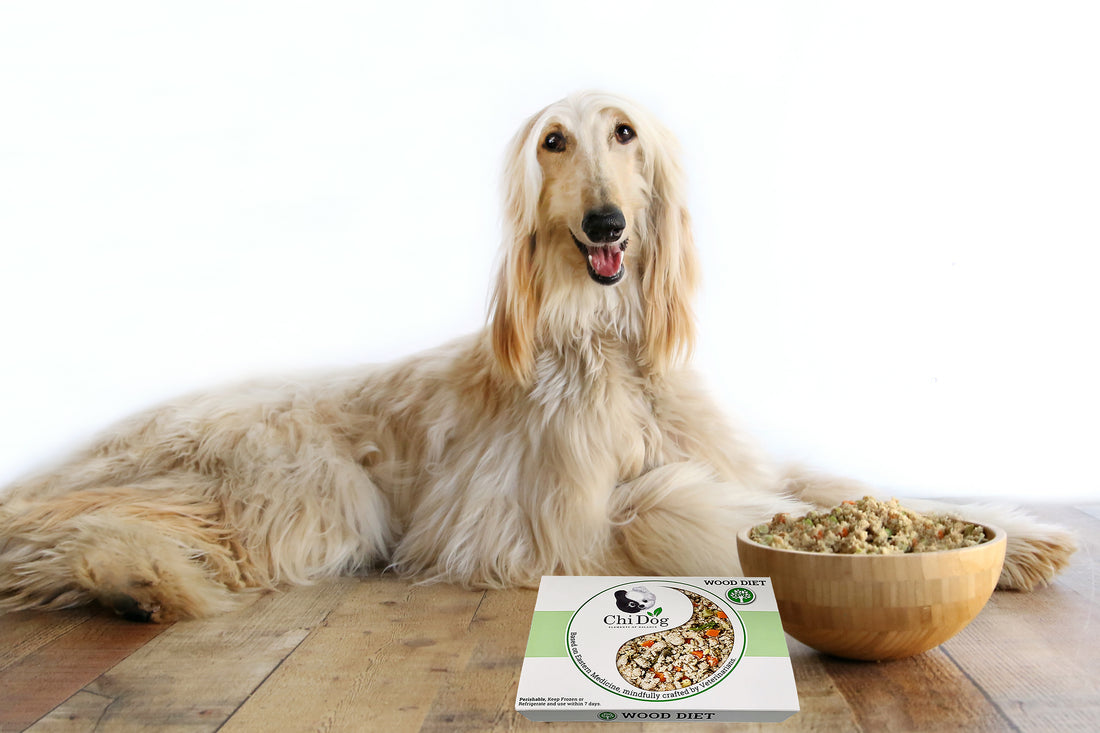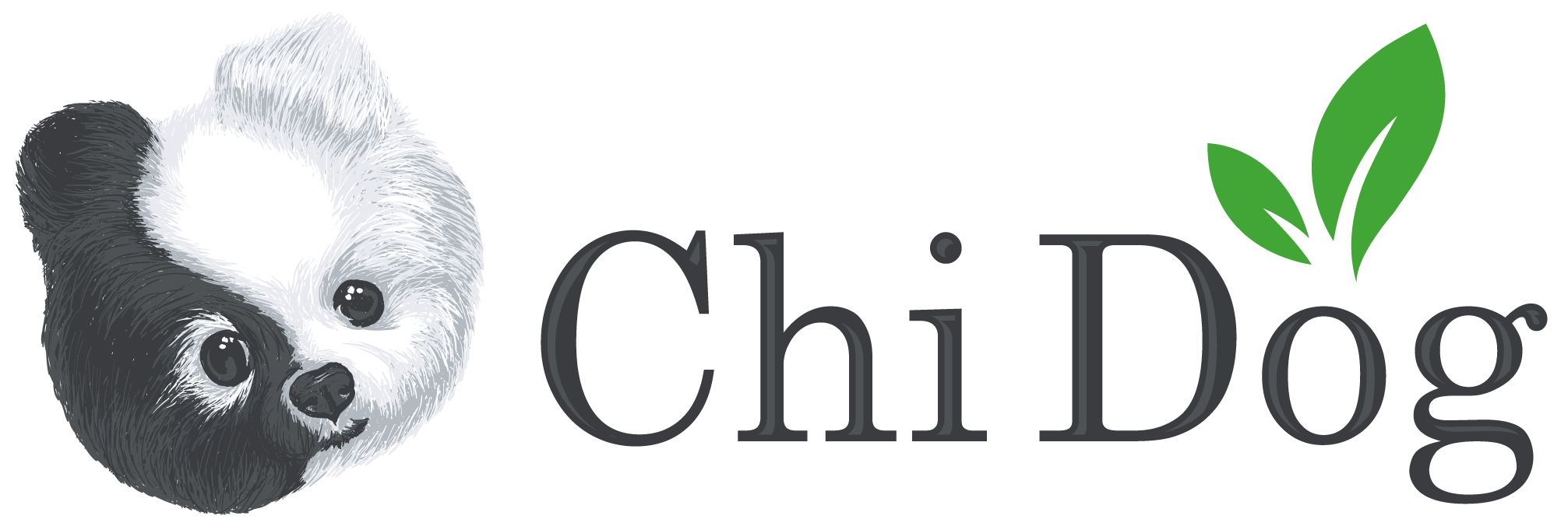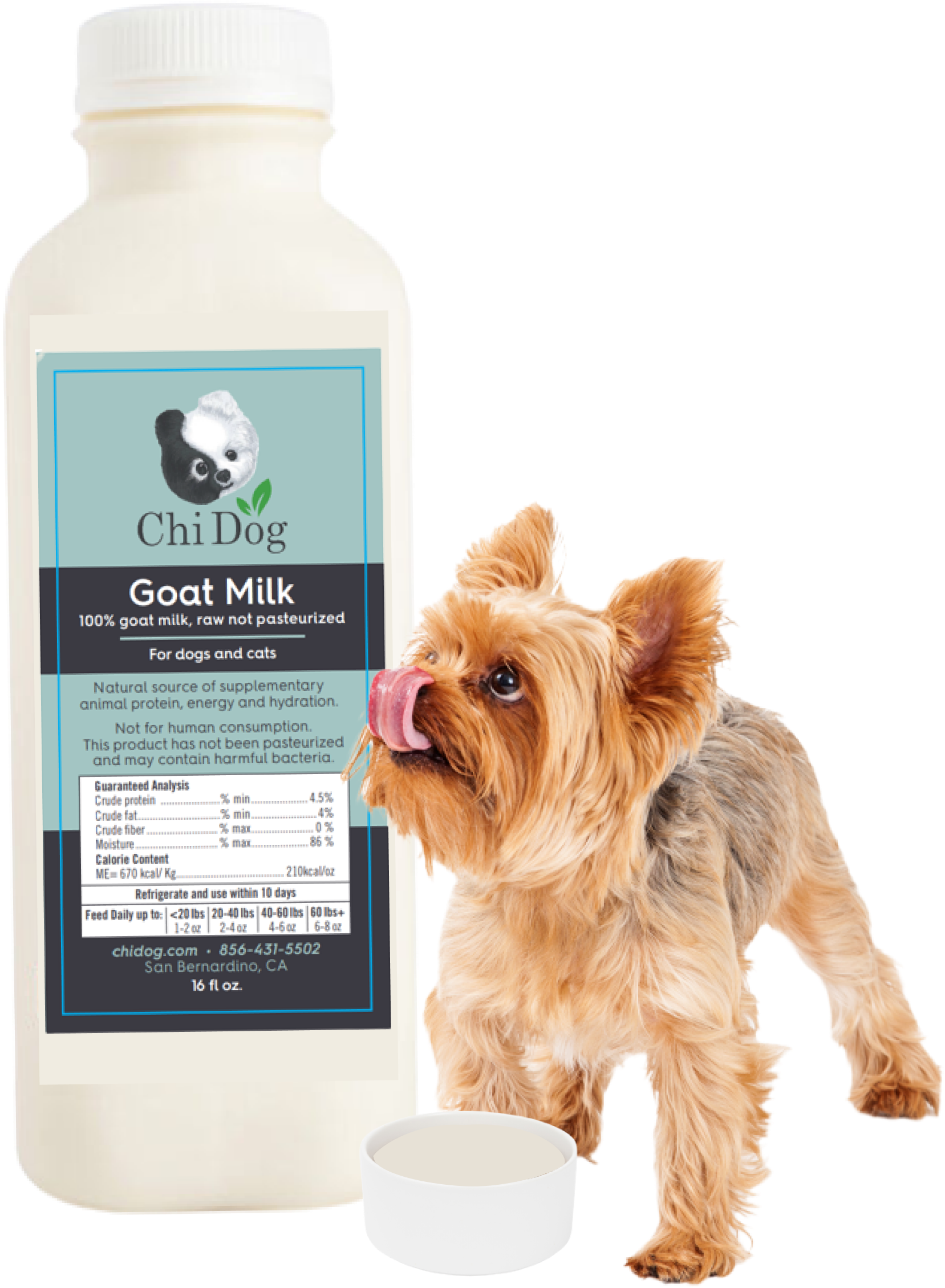
What is the Best Dog Food for Overweight Dogs? Introducing the Best Diet for Overweight Dogs

It's a painful moment when you realize your furry friend isn't just cuddly - but maybe a little overweight. Being a dog parent comes with a responsibility to keep your pup healthy, and that includes maintaining a healthy weight.
You notice they have a bit more trouble getting up, or maybe they don’t run quite as fast when you call them in from outside. Or, perhaps you can physically see the changes in their appearance. Whatever the case, once you notice the early warning signs of your dog’s excessive weight gain, it’s up to you to take action.
Obesity in dogs can lead to a plethora of health issues, reducing their quality of life and shortening their lifespan. So, what's the solution? It’s not too different from managing weight gain in humans. It comes down to what you feed them (and how much you feed them).
There’s no question that gaining access to the best dog food for overweight dogs plays a significant role in your pet’s weight management. But navigating the world of pet nutrition can be daunting, with so many brands and products vying for attention.
We, at Chi Dog, understand the struggle and are here to help you make informed decisions for your beloved pet's health. Let's dive in and discuss the best diet for overweight dogs, influenced by Traditional Chinese Medicine's food therapy wisdom.

Is My Dog Really Overweight?
Let’s get one thing out of the way…is your dog really overweight?
Maybe friends have commented on how your pet has plumped up since they last visited. Or, perhaps your vet has brought the issue to your attention after a recent vet visit.
So, before we get into what to feed an overweight dog, let’s determine what makes a dog “overweight”.
Understanding Dog Weight Standards
Determining if your dog is overweight is the first step in addressing the issue. But how do you know what is normal?
Dog weight standards aren't one-size-fits-all. Various factors contribute to the ideal weight for a dog, including the breed, age, and sex. For example, smaller breeds like Chihuahuas naturally weigh less than larger breeds like Labradors. Puppies and younger dogs may have different weight standards compared to adult dogs due to growth factors.
While your vet can provide the most accurate weight range for your dog, you can also look at breed standards as a general guideline. However, it's essential to keep in mind that these are averages, and individual dogs may naturally fall slightly above or below these standards.
Spotting the Signs of an Overweight Dog
Determining if your dog is overweight requires both visual assessment and physical touch.
Visually, dogs at a healthy weight have a discernible waist when viewed from above. The waistline should be narrower than the chest and hips. From the side, the abdomen should appear slightly tucked up behind the ribcage.
When you run your hands along your dog's body, you should be able to feel the ribs covered by a thin layer of fat. If you can't easily feel the ribs, your dog might be carrying excess weight. The same applies to the backbone and hip bones.
Changes in behavior can also be a sign of weight issues. Is your dog slower to get up or move around? Do they tire easily during walks? Are they experiencing difficulty in handling routine physical activities that they used to enjoy? These changes could indicate that the extra pounds are burdening your dog.
Now, we’re not here to body shame your furry friend - there’s just more of them to love! But at a certain point, weight management becomes necessary from a standpoint of keeping your dog healthy and happy.
Why Weight Reduction is So Important for Overweight Dogs
If your dog is carrying extra pounds, you may be wondering, is it really such a big deal? The answer is a resounding yes.
Weight reduction is essential for your dog's overall health and wellbeing, and that's not just from a Western perspective, but from a Traditional Chinese Medicine standpoint as well.
In Traditional Chinese Medicine, the body is seen as an interconnected system where the physical, mental, and spiritual aspects all play a role in health. Excess weight can cause imbalances in this system, leading to various health issues.
For example, from a TCM perspective, obesity can be seen as a condition of "dampness" and "phlegm," which can obstruct the flow of Qi (vital energy) and disrupt the balance of Yin and Yang within the body. Let’s look at some of the health risks of canine obestity to set the stage further.
The Health Risks of Canine Obesity
Carrying around extra weight isn't just uncomfortable for your dog; it can pose serious health risks. Obese dogs are more prone to a variety of ailments, including:
- Joint issues: Extra weight puts additional stress on your dog's bones and joints, which can lead to conditions like arthritis and hip dysplasia.
- Diabetes: Just like in humans, obesity can lead to insulin resistance in dogs, leading to diabetes.
- Heart disease: Overweight dogs have to work harder to pump blood, leading to an increased risk of heart disease.
- Breathing problems: The extra fat around the chest and neck can make it more difficult for your dog to breathe.
- Liver disease: Excess fat can accumulate in the liver, leading to a condition known as hepatic lipidosis. This is something we discuss more in-depth in our guide on what to feed a dog with liver disease.
- Decreased immune function: Obesity can affect the immune system, making your dog more susceptible to infections.
Beyond putting your pup at risk of these complications, let’s look at how failing to take action to implement weight management tactics can affect their lifespan and quality of life.
The Lifespan and Quality of Life Benefits of Weight Reduction
Several studies have indicated that dogs at a healthy weight live longer than their overweight counterparts. Not only do they live longer, but their quality of life is greatly enhanced.
Weight reduction can relieve the stress on your dog's joints, improving their mobility and reducing pain associated with joint diseases. It can also alleviate the strain on their heart and lungs, allowing for easier breathing and increased stamina.
Reducing your dog's weight brings their body back towards balance, enhancing their energy levels and overall mood. Dogs at a healthy weight tend to be more active and playful, which in turn encourages a more joyful and fulfilling life.
From a Traditional Chinese Medicine perspective, reducing dampness and phlegm through weight loss can unblock the flow of Qi, restoring harmony and balance within your dog's body. This leads not only to physical wellbeing, but mental and emotional health as well.
Therefore, it's clear that weight reduction is of vital importance for overweight dogs. And you may assume the answer is as simple as feeding them a little bit less.
But there is more to it. They need the best diet for overweight dogs. To illustrate why that is, let’s delve into why typical dog foods tend to fall short.
Why Typical Dog Foods and Diets Won’t Cut It
When it comes to managing your dog's weight, the type of food they consume plays a pivotal role. You may assume that all dog foods are created equal, but that's far from the truth.
Most commercial dog foods, while convenient, often don't provide the right balance of nutrients your dog needs to maintain a healthy weight.
Traditional Chinese Medicine (TCM) emphasizes the importance of balance in all aspects of health, including diet. The typical Western diet for dogs, laden with high-glycemic carbohydrates, processed proteins, and artificial additives, tends to create disharmony in your dog's body from a TCM perspective.
This imbalance can lead to conditions such as "dampness" and "phlegm", which in turn can contribute to weight gain and obesity.
Can Dog Food Contribute to Obesity? The Problem with Typical Commercial Pet Foods
So, how can the typical commercial pet food contribute to obesity? Here's the breakdown:
- High carbohydrate content: Many commercial pet foods are packed with carbohydrates, often in the form of cheap fillers like corn, wheat, and soy. Dogs, however, are primarily carnivores, and their bodies aren't designed to process high levels of carbohydrates. Excess carbs are converted into sugar in the body, which can then be stored as fat.
- Low-quality proteins: Protein is essential for maintaining lean muscle mass, but not all proteins are created equal. Many commercial dog foods use low-quality, highly processed protein sources that are difficult for your dog to digest and utilize effectively.
- Artificial additives: Many commercial pet foods contain artificial colors, flavors, and preservatives that can disrupt your dog's natural metabolism and contribute to weight gain.
- Calorie-dense formulas: Some pet foods are calorically dense but nutritionally poor, meaning your dog may be consuming more calories than they need without getting the essential nutrients for overall health.
Essential Nutrients for Weight Management in Dogs
A balanced diet for weight management should focus on high-quality proteins, a moderate amount of healthy fats, and low-glycemic, fiber-rich carbohydrates.
- Proteins: High-quality animal proteins provide the necessary amino acids for muscle development and maintenance. A diet rich in protein will help your dog feel satiated, reducing overeating.
- Healthy fats: While it may seem counterintuitive, certain types of fat are actually beneficial for weight management. Omega-3 and omega-6 fatty acids, for example, can help boost your dog's metabolism, support skin and coat health, and provide a slow-release energy source.
- Fiber-rich carbohydrates: Carbohydrates that are high in fiber, such as sweet potatoes, brown rice, and various vegetables, can help your dog feel full and satisfied without the excessive calories.
- Vitamins and Minerals: A well-rounded diet for weight management should also include a wide range of vitamins and minerals to support overall health.
The question now becomes, what is the best dog food for overweight dogs? What can you feed your dog that meets these standards and helps your pup get back to their thinner, fitter self? You needn’t search far - Chi Dog has you covered.
So, What is the Best Dog Food for Overweight Dogs? Introducing the Best Diet for Overweight Dogs
At Chi Dog, we understand that your dog's health is of utmost importance, especially when it comes to weight management. That’s why we’ve used our decades of experience to formulate holistic dog food that can address the problem head on.
While exercise and portion control are integral parts of the solution, the best diet for overweight dog plays a pivotal role in ensuring a healthier, happier life.
So, here’s how we’ve approached formulating the best dog food for overweight dogs…
Our Philosophy for Formulating Pet Food at Chi Dog
Our philosophy at Chi Dog revolves around providing individualized, holistic, and balanced diets for your pets.
Our food formulations are not only grounded in modern veterinary science but also the principles of Traditional Chinese Veterinary Medicine (TCVM), thus offering a balanced approach towards overall wellness.
And, we have two different options if you’re on the hunt for the best diet for overweight dog. One takes a low-carb approach, while the other is a low-fat approach. After we break down both of these, we’ll help you choose the best one for your pup.
The Earth Diet: a Light, Low-Fat Diet for Managing Obesity and Other Conditions
Our Earth Diet is an excellent choice for overweight dogs. It's a light, low-fat diet specifically designed to aid in weight management and obesity. Moreover, it also helps in managing inflammation and supporting cancer remission and prevention.
This diet consists of low-fat ingredients like eggs and tofu, fiber-rich sweet potatoes, and nutrient-dense vegetables like spinach, green peas, and mushrooms.
With a guaranteed analysis of a minimum of 11.5% crude protein, a low 4.75% fat, and a low carbohydrate content of 14%, it's perfect for your pet's weight loss journey.
The Metal Diet: a Hydrating, Low-Carb Diet for Addressing Weight Gain and More
Our Metal Diet is another brilliant option for your overweight dog. This hydrating, low-carbohydrate, strength-building diet is formulated to aid weight management, manage constipation, and support dogs with lung disease, diabetes, and skin conditions.
This diet includes high-quality beef, white potatoes, and a variety of nutrient-packed vegetables like bok choy, kale, and carrots. The Metal Diet is designed with a 15% minimum crude protein, a moderate 9.5% fat content, and a low carbohydrate composition of only 10%.
Not Sure Which is Right For You? Get in Touch With Our Expert Veterinarians at Chi Dog
Choosing the best diet for your overweight dog can be overwhelming, but you don't have to do it alone. At Chi Dog, our team of expert veterinarians is ready to help you navigate the best options for your dog’s specific needs.
Consider the Earth Diet if your dog is significantly overweight or obese. This diet has lower fat and protein content, making it ideal for weight loss. Also, its anti-cancer properties make it an excellent choice if your dog is battling cancer or you want to take preventive measures.
On the other hand, if your dog needs to manage weight but also has other conditions like dry skin, constipation, or lung disease, the Metal Diet may be a better fit. This diet is not only hydrating but also low in carbohydrates, helping to combat weight gain while offering strength-building properties.
Furthermore, consider your dog's personal preferences. Some dogs may prefer the hearty flavors of beef found in the Metal Diet, while others may prefer the vegetarian, light profile of the Earth Diet. However, if you're still unsure, please don't hesitate to get in touch with us. Our expert veterinarians are always here to provide personalized advice based on your dog's unique health profile.
Tips for Transitioning to the Best Dog Food for Overweight Dogs
Transitioning to a new diet is a crucial part of weight management, but it must be done gradually.
Start by mixing a small amount of the new diet with your dog's current food, gradually increasing the proportion of the new diet over one to two weeks.
This method helps prevent digestive upset and allows your dog to adjust to their new diet.

Beyond Feeding the Best Diet for Overweight Dogs, Follow These Tips to Help Them Lose Weight
While switching to the best dog food for overweight dogs is crucial in managing your dog's weight, there are other equally important aspects of weight management that we must not overlook. Let's delve into these other weight loss strategies that can help your dog achieve a healthier weight and an improved quality of life.
The Role of Regular Exercise in Weight Reduction
Just like in humans, physical activity is a key component in any weight loss strategy for dogs. It helps burn excess calories and strengthens your dog's muscles, contributing to a healthier body weight.
Engage your dog in regular walks, fetch games, or even swimming if your dog is fond of water. These activities not only help in weight reduction but also provide an opportunity to bond with your pet.
How Much to Feed Overweight Dog: Managing Portions to Slowly Shed Pounds
Portion control is another critical factor in weight management. As a rule of thumb, the more active your dog is, the more calories they can consume. However, if your dog is overweight and has a sedentary lifestyle, it's important to cut down on portion sizes gradually.
This gradual reduction will help prevent any shock to your dog’s system, ensuring they adjust to the new diet plan comfortably. We obviously recommend avoiding the “free feeding” method where your dog’s bowl is always topped off. Stick to a few meals a day and be strict in portions.
The Importance of Regular Vet Checkups for Weight Monitoring
Regular checkups with the vet are essential for monitoring your dog's weight loss progress. Your vet can provide insights into whether the diet and exercise regimen are working, or if any adjustments need to be made.
Furthermore, regular vet visits help to catch any potential health issues early, ensuring your dog remains healthy throughout their weight loss journey.
Techniques for Behavioral Change to Support Weight Loss
Sometimes, weight loss in dogs requires behavioral changes. This could mean adjusting feeding times, the environment in which they eat, or how they receive their food. For instance, puzzle feeders can slow down eating, which can help your dog feel fuller while eating less.
Wrapping Up Our Guide on the Best Dog Food for Overweight Dogs to a Close
At Chi Dog, our primary goal is to ensure the overall wellness of your pet. Our nutrition philosophy, grounded in Traditional Chinese Medicine principles, goes beyond just feeding your dog. It's about providing a holistic, balanced lifestyle that takes into consideration their diet, physical activity, and overall wellbeing.
Whether your dog needs to shed a few pounds or you're proactively working to prevent weight gain, remember that the journey to optimal health is a marathon, not a sprint. It takes time, patience, and consistency. With the best dog food for overweight dogs from Chi Dog, regular exercise, appropriate portion sizes, and regular vet checkups, your dog can achieve and maintain a healthy weight.
As you navigate your dog's weight loss journey, remember we are here to assist. If you have any questions or need more personalized guidance, don't hesitate to reach out to our team of experts.
Let's work together to provide your dog the best possible care, ensuring they live a long, healthy, and happy life. Start today by getting the best diet for overweight dog at Chi Dog.
_________________________________________________________________________
About the author
Dr. Susan Bohrer has been a practicing veterinarian for 15 years teaching home cooking techniques to clients. Dr. Bohrer is Certified in Traditional Chinese Veterinary Medicine’s Herbal Therapy, Acupuncture and Food Therapy.
Download PDF here



